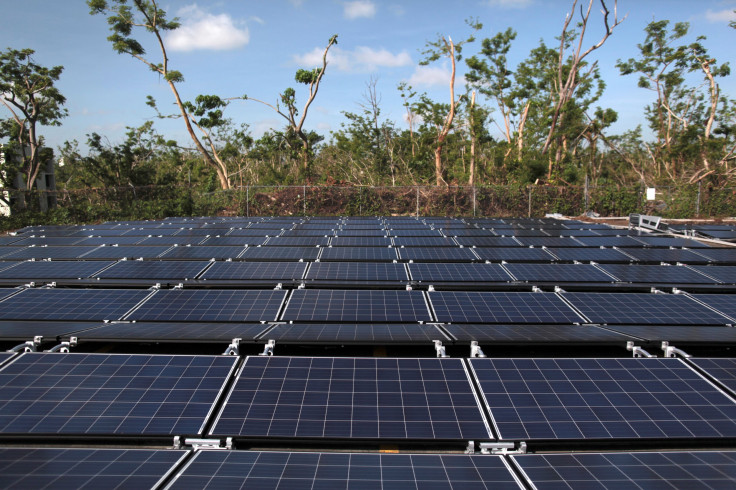Tesla Expects 'Enormous' Growth In Solar

Tesla (NASDAQ:TSLA) has consistently been very optimistic about its energy business. But only one side of its energy business — storage — has taken off so far. Tesla's solar business has essentially been in decline since the company acquired SolarCity in November 2016. In Tesla's first quarter of 2018, for instance, deployment of solar-energy generation systems nearly halved, falling from 150 megawatts in the first quarter of 2017 to 76 MW.
This article originally appeared in the Motley Fool.
But despite Tesla's anemic solar sales recently, management says its energy business is on track. Indeed, Tesla says it's preparing for a surge in sales.
What's the holdup?
Since Tesla recently lost its spot as the top residential solar installer in the U.S., a surface-level view of its solar business may lead some investors to conclude the company's ambitions for the unit have scaled back. Furthermore, falling sales might suggest that demand for the company's solar products is suffering. But neither of these is the case.
"No one should see us as stepping back from solar," Tesla chief technology officer J.B. Straubel said in an interview this week with USA Today. "In fact, it's the opposite." The CTO went on to explain that demand is off the charts, and the company is "aggressively ramping" its solar production capacity.
Tesla asserts that its declining solar sales are a result of both the company's efforts to make higher-margin sales that contribute cash flow, and its near-term focus on ramping up Model 3 production.
"Rather than prioritizing the growth of MW of solar deployed at any cost, we are selectively deploying projects that have higher margin and generate cash up front," Tesla explained in its first-quarter shareholder letter in 2017. "This will improve the business unit's cash generation," management noted.
Tesla has done exactly this, according to the company's first-quarter 2018 shareholder letter earlier this year: "Cash and loan system sales [as opposed to leases] made up 66% of residential deployments in the quarter, up from 31% in Q1 2017 and 9% in Q1 2016." As a result, the letter explained, Tesla's solar business has successfully become cash flow positive:
Due to higher upfront cash sales, lower emphasis on less profitable commercial projects and consolidation of our sales channels, our solar business had slightly positive cash flow throughout 2017. We are expecting cash flow from our solar business to remain at this level in the first half of 2018 and then improve significantly thereafter.
It's more critical than ever right now for Tesla's solar unit to produce cash flow for the company, as Tesla is burning through cash amid its capital-intensive Model 3 production ramp-up. And Tesla is facing a self-induced cash crunch as the company attempts to prove to investors that it can survive the Model 3 ramp-up without raising any fresh capital in 2018.
But as Model 3 production stabilizes at a rate above 5,000 units per week, the company expects to become profitable, and subsequently focus more on other areas of its business.
Growth is on the horizon
With Tesla recently achieving its target Model 3 production rate of 5,000 units per week and now aiming for a rate of 6,000 units per week by the end of August, the company will likely begin to shift more of its resources to ramping up its solar business. Indeed, growth in solar will likely be "mild" for the next "quarter or two before our revised sales strategy starts to show its full impact in final deployments," Tesla forecast.
In addition, Tesla wants to make sure it delivers when it comes to quality and the customer experience before it ramps up production and deliveries of its solar roof. "We are working to enhance the product design and manufacturing process [of the solar roof] in order to improve the customer experience while reducing manufacturing cost and achieving high levels of quality," Tesla said in the first-quarter update.
Tesla may, therefore, be just a few quarters away from a big increase in solar production and sales. Straubel is particularly optimistic. "We're not worried," he told USA Today. "The growth ahead will be enormous."
Daniel Sparks owns shares of Tesla. The Motley Fool owns shares of and recommends Tesla. The Motley Fool has a disclosure policy.




















